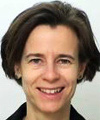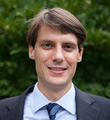Sustainable Energy for All’s New Global Tracking Framework
27 June 2013
View Webinar Content
Presentation: Introduction to the webinar and panelists
Presentation: Global Tracking Framework
Transcript—Webinar audio transcript
<!–
26 June 2013, 9:30 am – 11:00 am EDT
Check the time in your area. Space is limited. Reserve your webinar seat now at gotomeeting.com.
–>
This webinar, jointly hosted by the Clean Energy Solutions Center and three UN Foundation initiatives — the Energy Access Practitioner Network, the Global Alliance for Clean Cookstoves, and the Global Partnership for Energy-Efficiency Buildings — presented the Sustainable Energy for All initiative’s first Global Tracking Framework report, which was released on 28 May 2013 at the Vienna Energy Forum.
Prepared by a team of energy experts from 15 agencies under the leadership of the World Bank and the International Energy Agency, the report provides a comprehensive overview of 180 countries’ status with respect to action on energy access, energy efficiency and renewable energy, as well as energy consumption. As the Millennium Development Goals process has clearly demonstrated, measurable goals that enjoy widespread consensus can help mobilize commitments to action, strategic partnerships, and widespread support from key stakeholders and whole societies. The Sustainable Energy for All initiative is an illustration of what a Sustainable Development Goal on energy would look like. But, measuring progress is critical to achieving goals and getting results. The Global Tracking Framework report is the answer to the challenge of measuring and reporting progress towards achieving the Sustainable Energy for All objectives. The report’s framework for data collection and analysis aims to enable the global community to monitor progress on the Sustainable Energy for All objectives on energy access, efficiency, and renewables until 2030.
Presenter
 Vivien Foster, Sector Manager, Energy Unit, Sustainable Energy Department, World Bank Group
Vivien Foster, Sector Manager, Energy Unit, Sustainable Energy Department, World Bank Group
Vivien Foster is Sector Manager of the Energy Unit in the Sustainable Energy Department of the World Bank, which leads the Bank’s thinking on issues around sustainable access to clean, efficient, reliable, and affordable energy for all citizens. Prior to that she was Lead Economist in the Office of the Director for Sustainable Development in the Africa Region of the World Bank, where she was responsible for leading knowledge work across the infrastructure and energy sectors, and coordinated a major knowledge program known as the Africa Infrastructure Country Diagnostic. Her work at the World Bank involves both analytical and advisory services, and economic input into the design and supervision of projects, with a focus on the impacts of infrastructure reform and privatization on the poor. Her work has focused primarily on Africa and Latin America. Before joining the World Bank, she was a Managing Consultant of Oxford Economic Research Associates Ltd in the UK where she advised private and public sector clients in the water and energy industries, and worked with numerous Latin American governments on issues relating to water sector reform. She holds a Doctorate in Economics from University College London.
 Ryan Hobert, Director for Energy and Climate Change, United Nations Foundation
Ryan Hobert, Director for Energy and Climate Change, United Nations Foundation
Ryan Hobert is the Director for Energy and Climate Change at the United Nations Foundation, an organization created in 1998 by entrepreneur and philanthropist Ted Turner to connect people, ideas and resources with the UN. Ryan works on a variety of climate and energy initiatives—including the UN Secretary-General’s Sustainable Energy for All initiative, which aims to reach three global goals by 2030: universal energy access; a doubling of the annual rate of energy efficiency improvement; and a doubling of the use of renewable energy. Before joining the UN Foundation in 2004, Ryan worked at the United Nations Environment Program’s Energy Branch in Paris. Ryan holds a B.A. in Political Science from Wheaton College, in Illinois; and a Masters in International Affairs from the Institute of Political Studies (Sciences Po) in Paris.
